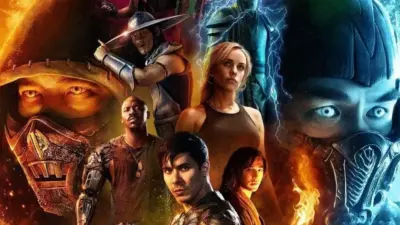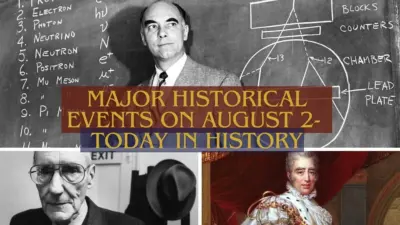Have you ever wondered, What Does Mythology Mean? For me Mythology is more than just a collection of ancient stories. It represents the cultural and spiritual heritage of civilizations, offering a window into how our ancestors understood the world, their place in it, and the forces that shaped their existence. Mythology can be defined as a body of myths, or traditional stories, that a particular culture or society believes to be true. These myths are often tied to religious beliefs, rituals, and the explanation of natural phenomena. Today, mythology continues to influence literature, art, and popular culture, proving its enduring relevance in modern society. The exploration of mythology is not just an academic pursuit; it is a journey into the collective psyche of humanity. Myths reveal the hopes, fears, and values of the societies that created them. They offer insight into human nature and the timeless questions that have puzzled humanity for millennia.
Origins of Mythology
The word “mythology” is derived from the Greek words “mythos,” meaning story, and “logos,” meaning word or discourse. Thus, mythology literally means the study of Stories or the body of stories pertaining to a particular culture. The origins of mythology are as ancient as humanity itself. From the earliest days of human civilization, people have created stories to explain the mysteries of the world around them, from the creation of the universe to the forces of nature and the afterlife.
Different cultures around the world have their own unique mythological traditions. The Greeks and Romans developed intricate mythologies featuring gods, heroes, and monsters that explained everything from the origins of the cosmos to the nature of human emotions. The Egyptians had a rich pantheon of gods who governed all aspects of life and death, while Norse mythology is filled with tales of gods and giants, heroism and doom. Hindu mythology is vast and complex, with Stories that explore the nature of the divine, the universe, and human existence.
These early myths were primarily transmitted through oral traditions, passed down from generation to generation by storytellers. With the advent of writing, many of these Stories were recorded in texts such as the Greek epics of Homer, the Hindu Vedas, and the Norse Eddas. Art and architecture also played a significant role in preserving and conveying these myths, with temples, sculptures, and paintings depicting scenes from mythological stories.

Components of Mythology
Mythology is composed of several interrelated components that together create a comprehensive system of beliefs and stories. The primary components include myths, legends, and folklore.
- Myths: Myths are the core narratives within mythology that deal with gods, creation, and the supernatural. They often address existential questions and are imbued with symbolic meanings. For example, creation myths explain the origin of the world and humanity, such as the Greek myth of Gaia and Uranus or the Norse myth of Ymir. Hero myths, like the stories of Hercules or King Arthur, focus on the adventures and trials of legendary figures who embody the values and ideals of their culture.
- Legends: Legends are stories that, while grounded in historical events or figures, are embellished with mythical elements. Unlike myths, which often involve gods and the supernatural, legends typically focus on human protagonists and are rooted in a particular time and place. An example is the legend of Robin Hood, a figure who may have been based on a real person but whose story has been expanded with fictional exploits.
- Folklore: Folklore encompasses the traditional beliefs, customs, and stories of a community, often passed down orally. While myths and legends may be considered part of folklore, the term also includes fables, fairy tales, and folk songs that reflect the values and fears of a society. Folklore often serves to preserve the cultural heritage of a people and can include moral lessons or explanations of natural phenomena.
Role of Mythology in Culture and Society
Mythology plays a crucial role in shaping and reflecting the cultural identity of a society. It serves as a mirror of a culture’s beliefs, values, and experiences, offering insights into how a society understands the world and its place in it.
- Cultural Beliefs and Values: Myths often encapsulate the moral and ethical principles of a culture. For instance, Greek myths like the story of Icarus warn against hubris and the dangers of overreaching ambition. Similarly, Hindu myths such as the Mahabharata and Ramayana convey lessons about duty, righteousness, and the complexities of human relationships.
- Societal Norms and Ethics: Mythology also establishes and reinforces societal norms. The stories of gods and heroes often exemplify the qualities admired by a culture, such as bravery, wisdom, and loyalty. In Norse mythology, the valor of warriors like Thor and Odin reflects the importance of strength and honor in Viking society. These myths provided a framework for understanding and justifying social hierarchies and roles.
- Art, Literature, and Religion: Mythology has had a profound influence on art and literature, inspiring countless works across different mediums. From Renaissance paintings of biblical scenes to contemporary novels that reimagine ancient myths, mythology provides a rich source of material for artistic expression. Religions, too, have been shaped by mythological narratives, with many religious texts incorporating or evolving from earlier myths.

Interpretation of Myths
The interpretation of myths is a complex field, with scholars and thinkers offering various perspectives on their meaning and significance.
- Symbolic Interpretation: Many myths are interpreted symbolically, where the characters, events, and settings are seen as representing deeper truths or concepts. For example, the myth of Persephone’s descent into the underworld can be understood as a metaphor for the cycle of life and death, or the changing seasons.
- Literal Interpretation: In some traditions, myths are taken literally, with their stories considered historical or factual accounts. This is often the case in religious contexts, where the events described in sacred texts are viewed as actual occurrences.
- Psychoanalytic Interpretation: Psychoanalytic theories, particularly those of Carl Jung and Sigmund Freud, have offered a psychological interpretation of myths. Jung’s concept of archetypes suggests that myths reflect universal patterns of human experience, with characters like the hero, the mother, and the trickster representing fundamental aspects of the human psyche.
- Reinterpretation Over Time: Myths are dynamic and have been reinterpreted to suit the changing needs and values of societies. For instance, modern retellings of classical myths may emphasize themes of feminism, environmentalism, or social justice, reflecting contemporary concerns.
- Modern Storytelling: Myths continue to influence modern storytelling in literature, film, and television. Stories like J.R.R. Tolkien’s The Lord of the Rings or the Marvel Cinematic Universe draw heavily on mythological themes and archetypes, demonstrating the enduring power of these ancient narratives.
Significance of Mythology in Understanding Human Nature
Mythology offers valuable insights into human nature, exploring universal themes and emotions that resonate across cultures and time periods.
- Exploration of Human Psychology and Emotions: Myths often address fundamental human experiences, such as love, fear, ambition, and mortality. The struggles and triumphs of mythological characters provide a means of understanding and coping with these aspects of life. The tragic flaws of characters like Oedipus or Achilles highlight the complexities of human nature and the consequences of personal choices.
- Archetypes and Their Representation: Mythological archetypes, such as the hero, the mentor, and the shadow, are recurrent symbols that represent universal patterns of behavior and thought. These archetypes can be found in myths from different cultures and continue to be used in modern storytelling, providing a connection between past and present.
- Universality of Myths: Despite the diversity of myths across cultures, many share common themes and motifs, suggesting a shared human experience. Creation myths, flood myths, and hero’s journeys are found in numerous cultures, indicating a universal attempt to understand and explain the world.
Modern Relevance of Mythology
Mythology is not just a relic of the past; it remains relevant and influential in today’s world.
Resurgence of Interest in Mythology: In the digital age, there has been a resurgence of interest in mythology, fueled by online platforms, social media, and the accessibility of ancient texts. This renewed interest has led to a re-examination of myths and their relevance to contemporary issues, such as identity, environmentalism, and social justice.
Contemporary Culture: Mythological themes and characters are prevalent in contemporary culture, from the popularity of superhero films to the revival of interest in ancient myths through books and television series. These modern adaptations often reinterpret traditional myths to address current social and political issues, making them relevant to new audiences.
Mythological Themes in Modern Media: The use of mythological themes in modern media is widespread, with films, books, and video games drawing inspiration from ancient stories. For example, the Harry Potter series incorporates elements of mythology, such as the Philosopher’s Stone and the Basilisk, blending them with modern storytelling to create a new mythos.

Conclusion
Mythology is a complex and multifaceted system of stories that has shaped human understanding of the world for millennia. It reflects the beliefs, values, and experiences of different cultures, offering insights into human nature and the universal questions of existence. Despite its ancient origins, mythology continues to influence contemporary culture, demonstrating its enduring relevance and significance. As we navigate the complexities of the modern world, mythology provides a lens through which we can explore our shared humanity and the timeless stories that connect us all.
Also Read: Mythology and Its Influence on Art



